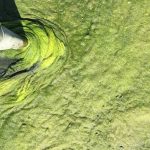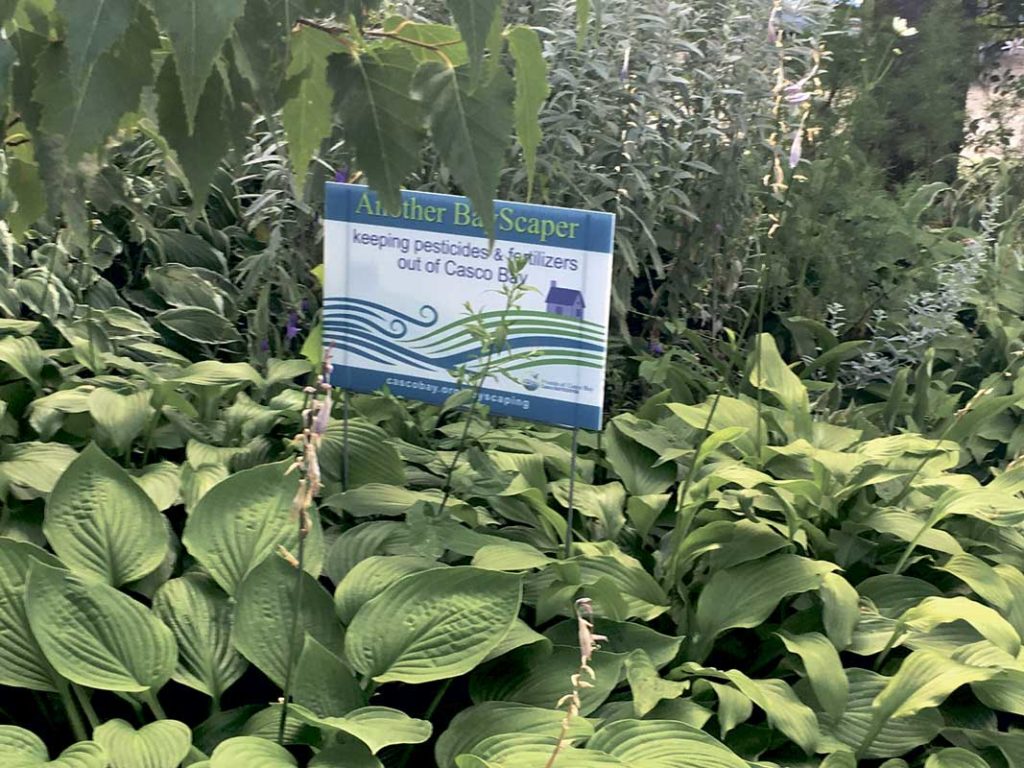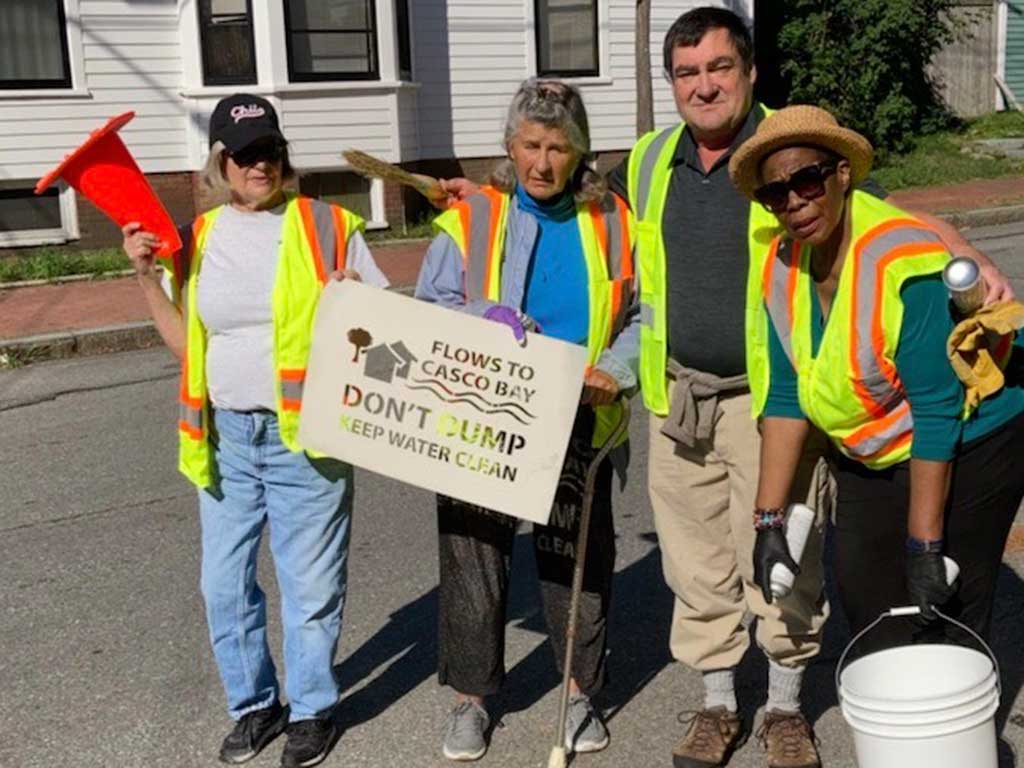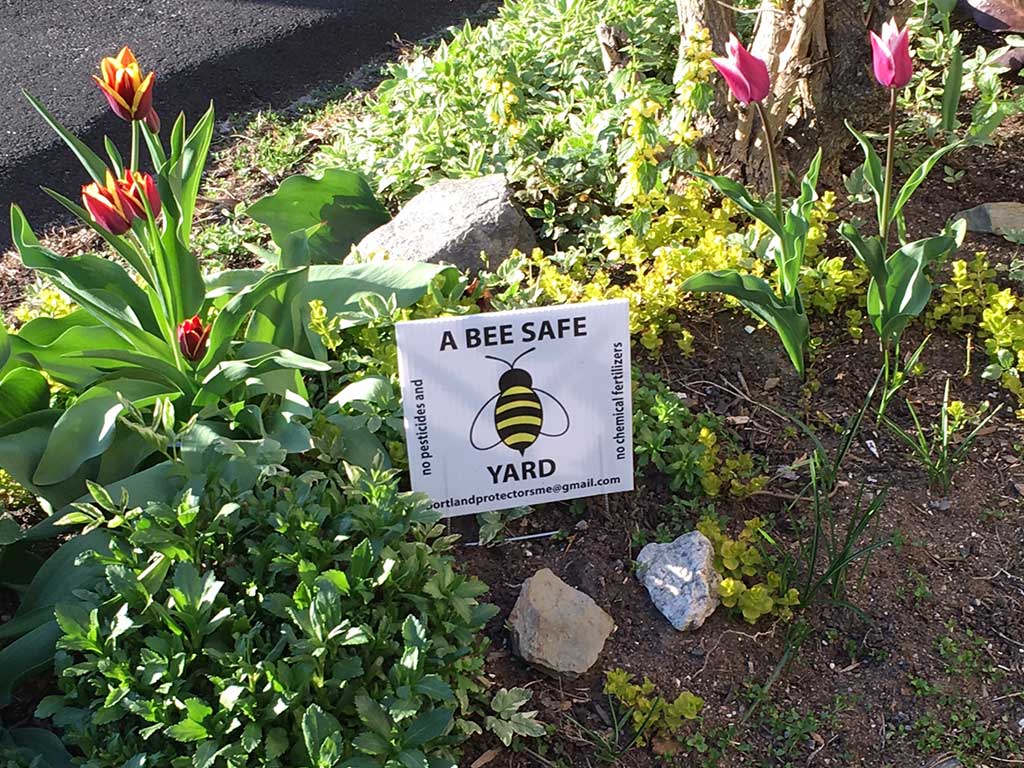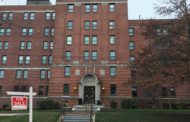by Tony Zeli
The Fore River is polluted with excessive nitrogen. So much so that in 2015, Friends of Casco Bay issued a report that listed Upper Fore River, in the Stroudwater area, as being in poor health. Since that report, further evidence has surfaced of unhealthy, high levels of nitrogen in our waterways.
Last July, there were sightings of green slime in Back Cove and South Portland’s Mill Creek. These blooms were caused by nitrogen. High levels of nitrogen lead to bacteria and ultimately the acidification of the Bay. And this spells trouble for the Bay’s ecosystem.
But there is good news. There is a simple solution, and one that you can be a part of today. Some call it, “Bayscaping.”
What is Bayscaping?
Bayscaping is an outreach program designed to encourage homeowners, businesses and municipalities to reduce their use of pesticides and fertilizers.
“Bayscaping is one of the things you can do and have an immediate benefit for the environment,” says Mary Cerullo, Associate Director of Friends of Casco Bay. “Certainly, not using pesticides and fertilizers, which are largely ornamental… will have an impact.”
For those of us lucky enough to have grass lawns there are simple steps that will lessen our impact on the Bay while still allowing for a healthy lawn. First, save seeding and fertilizing for the Fall. Feel free to attack weeds early in the spring, but use your hands! Pull them out by the root before they proliferate. Mow high, leave clippings, plant appropriate grass species, and water deeply and infrequently.
But what does Bayscaping mean to the rest of us, downtowners whose “lawns” are streetscapes, pavement and tiny, though much beloved, patches of grass and plantings.
For the urbanite, Bayscaping still means we must stop using fertilizers and pesticides. Anything you use on your property will wash downhill and into the waterways. Mary Cerullo says we should think of storm drains as a direct pipeline to Casco Bay.
Think about this the next time you sweep your sidewalk, wash your car, or spray round-up into the cracks of the pavement around your property. The West End drains into Casco Bay. It is as simple as that.
So, to help the Bay, don’t use chemical fertilizers and pesticides on your property. Period.
Stormwater
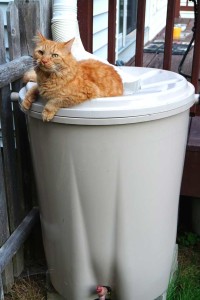
In addition to potentially reducing your stormwater fee, rain barrels are great fun for cats! -Photo by Tony Zeli
Next, lend a hand and keep those storm drains clear. Rake winter debris away from storm drains. Help pick up cigarette butts and properly dispose of them. And pick up after your dog!
Every year residents organize April Stool’s Day clean-ups. This year many neighbors celebrated Earth Day with a neighborhood clean-up. Look for opportunities to help out next Spring.
Whether big or small, keep what lands on your property on your property. Reduce run-off. Consider using a rain barrel to collect rain runoff from your roof. The plus to this is a possible storm water credit from the City. The water district separated storm water from sewerage on your water bill. To earn credits by diverting runoff, or for more information call 207-874-8462 or visit http://portlandmaine.gov/1564/Stormwater-Credits.
And if you are doing any major renovations, keep all this in mind. Replace driveways with permeable pavement instead of petroleum based asphalt. Permeable pavers allow water to seep through to the ground below instead of running into the storm drains. Also, consider replacing lawns with native plants.
What about the parks?
Meanwhile, where we urbanites do find expansive lawns are the public parks. This is where we must work together. Only through community activism can we reduce the use of fertilizers and pesticides in our parks. Follow the progress of a draft pesticide ordinance that is working its way to the City Council. Read more on Page 6.
Find spring Bayscaping tips from Friends of Casco Bay: https://cascobay.org/bayscaping.
Tony Zeli is editor and publisher of the West End News. Contact him at tony@thewestendnews.com.

